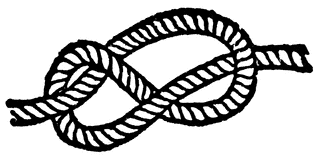
As you know, I’ve taken on all kinds of angles to researching Common Core’s presence in every educational realm. This includes not only traditional schools, but private ones, homeschools, post-secondary education, charters, and IB Schools (International Baccalaureate). I’d like to share a first hand student’s account of the experience in an IB school. But first, a bit of background for you.
Setting the Context:
In case you didn’t follow me back when I first wrote about CC and IBs, here’s the link to one of the original articles. https://www.commoncorediva.com/2014/11/14/fib-o-meter-friday-ib-international-baccalaureate-schools-common-core/
Also from Sept. 2014, when I was revealing the ties between a very controversial professor and IB Schools: https://www.commoncorediva.com/2014/10/08/wybi-wednesday-ccss-and-the-altruism-movement/
In case you are short on time and can’t access the entire articles, here are a few tidbits before I get to the conversation story I have to share.
From November’s article:
1) “The IB supports the creation and adoption of the Common Core State Standards.” (as stated in the 2012 IBO {International Baccalaureate Organization} presentation during the Conference of the Americas)
2) “Provides more precise definitions of academic success, a logical pathway toward goals while considering international benchmarks.” (also stated in 2012 at the same conference)
From September’s article:
1)” ‘IB Schools’ were created in 1968 and are a UNESCO partner. Alec Peterson is the person who founded the IBO, International Baccalaureate Organization.”
2) ” ‘IB schools’ are also tied to Aga Khan Academy Development Network, FL Virtual Public Schools. The USA was ‘saddled’ with ‘IB schools’ thanks, in part to the Reinvestment Act and with Race to the Top funding. ‘IB schools’ mission isn’t American, it’s global. From their mission statement, “At our heart we are motivated by a mission to create a better world through education.” From their history page: “…consisted of a common pre-university curriculum and a common set of external examinations for students in schools throughout the world, seeking to provide students with a truly international education..” ”
The Conversation:
Now that you have the context, here’s the setting of the conversation.
Setting: giving one of my daughter’s friends a ride in the car from her school to the local community theater. (This particular theater uses ‘theatre’ as part of its title)
The people involved: “Carol” and myself. “Carol” is someone I’ve met recently, so there’s not a long history between us. Being a mom, I’m used to asking how either my children or any of their friends questions like ‘How was school today?’. Call me an involved parent. After this initial question, it is usually not long before a natural conversation ensues. This was most certainly the case during this 20 minute drive. “Carol” responded to how her day went with ‘it was okay’. Knowing “Carol” was going to be at my home for the next few days, I asked if there was a tremendous amount of homework involved. This is when “Carol” stated that yes, there was a sizable amount because her school is an IB School. Now, not knowing how much about myself, my daughter has shared with her friend, I certainly wasn’t going to announce “I’m a research nut on all things Common Core, so let me pepper you with questions, see your textbooks, etc.” For this conversation, I simply wanted to see if any tidbits that are relevant to my research emerged…and yes, there were a couple of tidbits “Carol” gave me.
The Tidbits:
“Almost all my homework is a project. I have an English project, a math project, and an art project. In science our project is ________________________.”
“The art project is set to the IB’s parameters, not my parameters of creating what I see and wish to capture.” To clarify this, I asked, “So, you don’t get to paint or express artwork that’s your own, it must be the curricula’s?” Her answer, “Yes, it so awful. I want to learn the concepts of art, not be told what to draw!”
“I must do not only all this, but I’m performing in a show next week, and i have to find time to perform my community service hours.” As having researched IB schools, I know that at least one year of the upper classes (meaning 10th-12th) are required to complete 1 year of community service. So, knowing this, I said, “Yes, that’s right, as an IB student you must do that.” “Carol’s” reply, “I hate my school. I don’t want to have to serve, I want to be free to choose.”
“Because my last school was a charter school and I have AP courses, the IB school won’t give me credit, so I’m having to retake courses I’ve already passed, just so I can get them to match up with the IB’s system.”
“Our big end of year test is coming up in May and I must study to be able to pass that and make a good grade.”
Other tidbits “Carol” gave me were the buzzwords we’ve come to know in fighting CCSS in education. She literally used (on her own) the phrases “my path”; “my track for life”; “lining up my education for my life.”; “I must get everything together to earn that diploma.”Just so you know, “Carol” is only 15 years old.
What I was able to find out about her IB School:
Parents are encouraged to join the IB Parent Action Council for more partnering in a student’s life.
Here’s a visual of why “Carol’s” need for the diploma is so important (click to enlarge it):

Students are required to complete “Personal Projects” over their summers. Here’s the excerpt from a 10th grade 2014 assignment.
“10th Grade IB: The Personal Project
Over the summer being thinking about your IB Personal Project! The Personal Project is a significant and long-term body of work that grows out of your interests, initiative, and creativity. It will last ALL YEAR and is the capstone of the Middle Years Program. For many of you–hopefully most!–it is the bridge into the Diploma Program.”
From an 11th grade IB Psychological Summer Person Project, students were to choose one book from a book list of 7 books. The subjects were varied, but they are books I wouldn’t think suitable. Here’s the one book I know as a CCSS Warrior, you’ll cringe over:
Opening Skinner’s Box: Great Psychological Experiments of the Twentieth Century
by Lauren Slater
Through ten examples of ingenious experiments by some of psychology’s most innovative thinkers, Lauren Slater traces the evolution of the century’s most pressing concerns—free will, authoritarianism, conformity, and morality.
Beginning with B. F. Skinner and the legend of a child raised in a box, Slater takes us from a deep empathy with Stanley Milgram’s obedience subjects to a funny and disturbing re-creation of an experiment questioning the validity of psychiatric diagnosis. Previously described only in academic journals and textbooks, these often daring experiments have never before been narrated as stories, chock-full of plot, wit, personality, and theme. To see how the students were to complete the assignment: IB Psychology I Summer Assignment
As a student (from primary years and up), you must have an IB Learner Profile. Here’s the official description of why every student needs to be profiled, “The aim of all IB programmes is to develop internationally minded people who, recognizing their common humanity and shared guardianship of the planet, help to create a better and more peaceful world.” To access the entire profile: learner_profile_en (Note, if you see several blank pages, it is more than likely that information has been removed) From the IBO’s information, the obvious is ‘internationally minded’ citizens. Of course, the profile also bases everything on outcome based education. To see the IBO’s flyer: http://www.ibo.org/globalassets/digital-tookit/flyers-and-artworks/learner-profile-en.pdf


2 thoughts on “Monday Musings: Conservation with an IB Student”